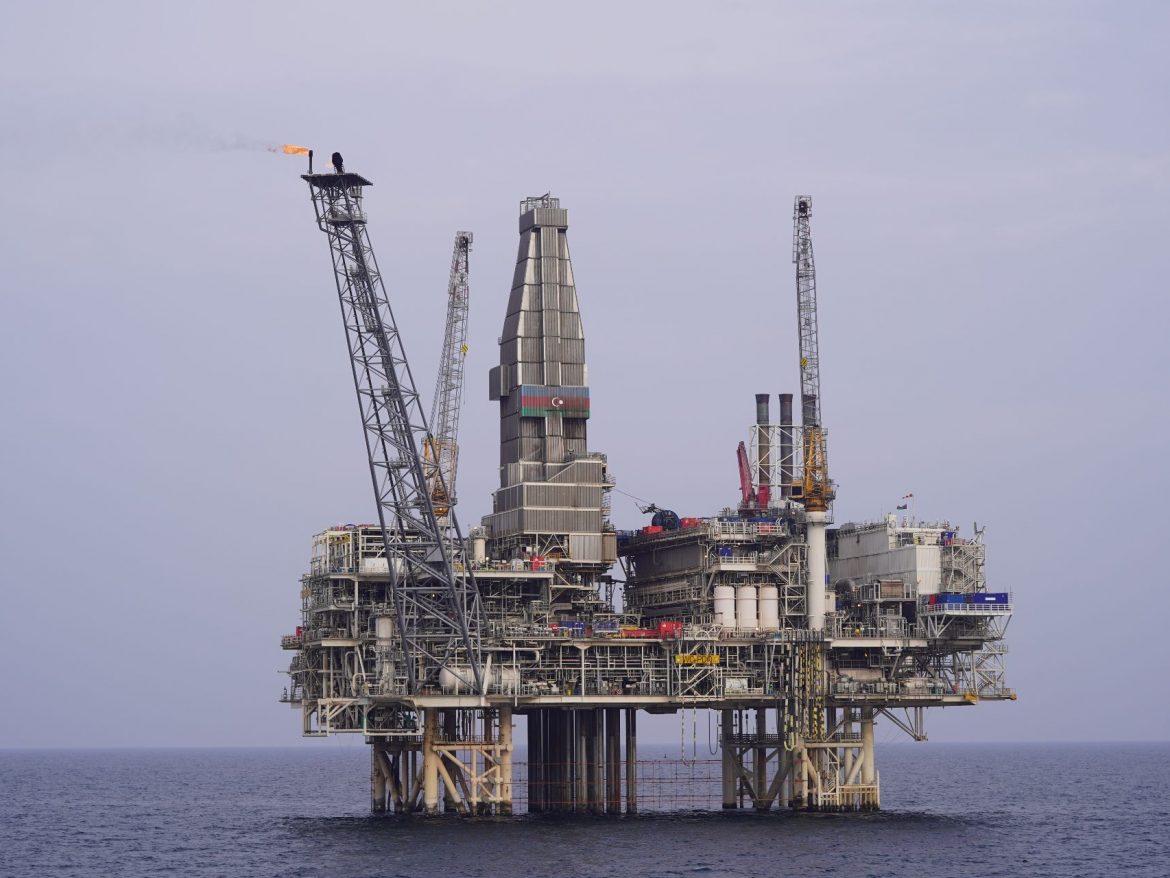Latest reports show that Azerbaijan, which will host this year’s UN climate talks, plans to increase its fossil fuel production by a third over the next decade.
The forecast indicates the Cop29 host will grow its annual gas production by about 12bn cubic metres (bcm) over the next 10 years, which is considered a crucial period in which global leaders must cut fossil fuel production if they hope to limit global heating.
According to data sourced by the campaign group Global Witness from analysts at Rystad Energy, Azerbaijan owns one of the world’s largest gasfields, Shah Deniz in the Caspian Sea, and the country is expected to extract 411bcm of gas over the next 10 years. This would emit 781m tonnes of carbon dioxide – more than two times the annual carbon emissions of the UK.
The figures are based on an analysis of Azerbaijan’s current gas production, plus its reserves approved for development and those that have been assessed by oil and gas companies but have not yet been cleared to develop. They suggest that the country’s annual gas production is likely to rise from an estimated 37bcm this year, to 49bcm a year in 2033.
Read also: Labour advisers warn against reducing £28bn green investment
The conservative analysis does not include gas reserves that are understood to be present but have not yet been proven by drilling, which could still be developed within the next 10 years. It also excludes Azerbaijan’s forecast production of gas condensate, which is a liquid form of the hydrocarbon.
Recall that last month, Azerbaijan’s president, Ilham Aliyev, said that the country was “confidently moving toward the goal” of doubling its gas exports to Europe by 2027. It also exports gas to Turkey and Georgia.
Last week, Aliyev’s government appointed a former executive of its state oil and gas company as president of the Cop29 climate talks that are scheduled to take place in Baku this November. Mukhtar Babayev was appointed Azerbaijan’s ecology and natural resources minister in 2018, after a 26-year career at oil and gas company Socar.
Critics of the appointment have drawn parallels with the appointment of Sultan Al Jaber to preside over last year’s Cop28 climate summit in Dubai, while still in his role as the chief executive of the Abu Dhabi National Oil Company.
Azerbaijan’s government hopes to fill the gap in Europe’s gas supplies left by Russia after its invasion of Ukraine almost two years ago. But critics have warned that Azerbaijan’s fossil fuel interests have played a direct role in funding the military aggression against ethnic Armenians in the disputed territory of Nagorno-Karabakh.
Story was adapted from The Guardian.
